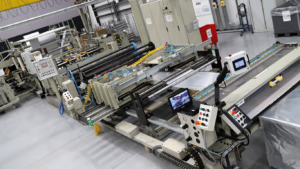Today, the Federal Reserve raised the benchmark borrowing interest rate to a range of 2 to 2.25 percent, marking the third interest rate increase this year. According to experts at UMB Bank, the rise in rates can have an impact on both consumers and businesses.
Business Impact
For businesses, an increase in interest rates could create unexpected and expensive changes to their current loan structure. In this economic climate, UMB Bank has heard many clients ask what they can do to meet their financial goals and reduce any surprises that come from rising rates. There are several options to help business owners navigate the rising interest rate environment, including:
• Interest Rate Lock: This is a guaranteed interest rate from the lender. This means the interest on the payment will never change.
• Floating Interest Rate: Or a variable/adjustable rate refers to an interest rate that does not have a fixed amount, meaning it can fluctuate with interest rate increases.
• Interest Rate Swap: A way for a company to lock in a fixed interest rate rather than have a floating rate on its loans. By locking in interest rates for an extended period, the company reduces its exposure to fluctuations from rising interest rates. This is most effective for companies that take out long-term loans (think five, seven or even 10 years) in large amounts, usually more than $3 million.
For business owners, time is of the essence to reduce risk from the increase in interest rates.
Consumer Impact
While rising interest rates can mean higher credit card fees or increased mortgage rates, they can have a positive impact on consumers who are wanting to take advantage of savings strategies. There are many options for customers who are looking to maximize their savings goals during the current economic environment, including:
• Money Market Accounts: Money market accounts can offer higher interest rates on balances, which means the money put away may earn more over time than it would in a standard savings account. A money market account is an ideal account for those who want to boost savings while still being able to use their funds.
• TD Laddering: A time deposit account (TD) allows investors to earn interest on money faster, or at a greater rate, than a standard savings account. With TDs, interest is compounded over set terms, which means funds will be more likely to grow over time. TDs lock money in for a specific term, ranging from one month to five years or more. A TD’s term is dependent on both the institution offering the account, and the preferred interest rate, with longer terms typically offering the most attractive interest rates.
For consumers looking to save and grow their money, the current economic environment is an optimal time to lock in a higher interest rate and maximize savings.




